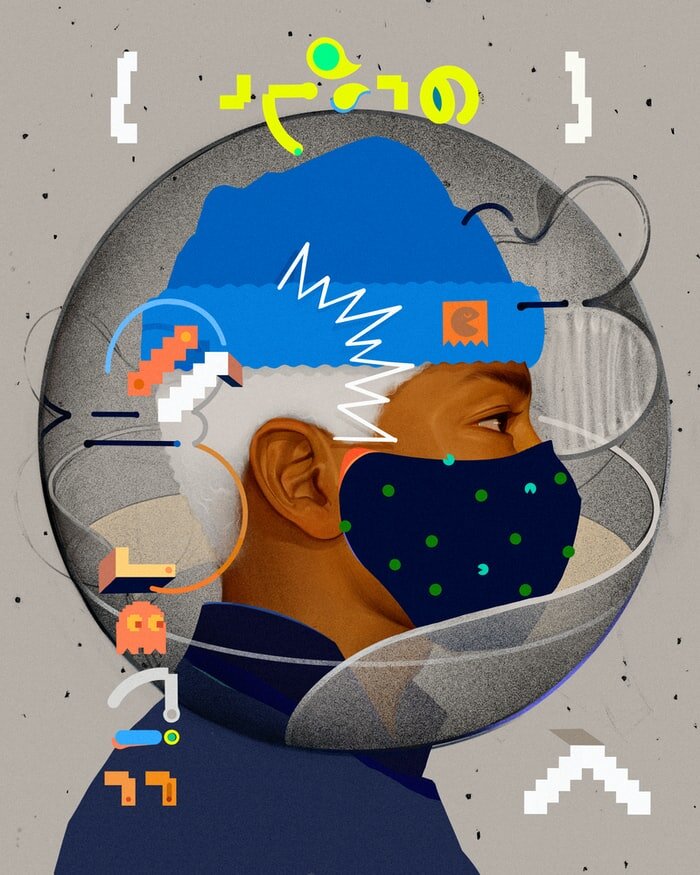
Trust is the post-pandemic battleground
Ben Shaw
28/05/2020
THERE ARE ABOUT 421 MILLION ISSUES FOR BUSINESSES TO SORT OUT RIGHT NOW DURING THE PANDEMIC. WHAT HAPPENS WHEN THAT STARTS TO DIE DOWN AND EVERYWHERE REOPENS. WHERE SHOULD BRANDS PRIORITISE, WHAT WILL CONSUMERS PRIORITISE? BEN SHAW, BBH LONDON HEAD OF STRATEGY, SUGGESTS IT’S THE BASIC PROMISE OF DELIVERING WHAT YOU SAY YOU WILL. IS TRUST THE POST PANDEMIC BRAND BATTLEGROUND?
Fake News. Political nitpicking. Brexit. Social Networks. Spam. Twitter verifications. Red Tractor labels. Hypernormalisation. Deep fakes. The world has been hit hard on the trust front recently. And this was before the Coronavirus pandemic. If you can’t trust the government, the media, your emails, how can you trust a brand?
Brand trust is one of the most valuable intangible assets in a business. Brand trust reflects a consumer’s expectation that a brand’s product, service, corporate behaviour, and reflects the promises the company has made. This is a fundamental reflection of a consumer’s belief the brand will deliver.
Why is trust important? Because it’s tightly related to growth. The British Council report that Trust is robustly related to economic growth with one study concluding that growth rises nearly one percentage point on average for each 15 percentage point increase in trust.
Trust should be a commonly occurring metric in industry discussion but it’s lost from the conversation. That may be because advertising has such poor trust levels with 69% of consumers report not trusting advertising. Without falling into that minefield – why aren’t there more case studies focused on building trust? It’s because rebuilding trust is seen as too long a job for most CMO’s – the McDonald’s 2018 IPA effectiveness entry documented a 10-year turnaround story. Or it’s because despite all the media hype there is no perceived long term change in trust levels. The assumption is that trust has declined as fake news, spam and always on all-pervasive media has risen. Yes there are year on year changes but levels of trust in the government, media and businesses have broadly remained static across decades.
Is that going to remain true from 2020? When the 2020 Edelman Trust Barometer was released in the weeks before the Pandemic took its grip across the world it revealed that none of the four societal institutions that the study measures—government, business, NGOs and media—is trusted. Despite the potential untrustworthiness of the media, the proliferation and access to news has meant more crises are exposed and shared. It’s become harder to hide misdemeanours and inconsistencies. The world is now fact-checking your commitment. Whether it’s contributing to climate change to lying about campaign funds or giving airtime to hate crimes – the world is now asking more of key institutions because it has tools and the courage to.
This has validated the emergence of the expected social responsibility of businesses. We’ve flirted with Brand Purpose but 56% of people believe that too many brands use societal issues as a “marketing ploy” to sell their products, rather than as a source of genuine conviction that drives tangible action. It feels like we’re at a whole new level of expectation now. Trust takes a long time to earn but can be lost in a moment. Warren Buffet said “Trust is like the air we breathe. When it’s present nobody notices; when it’s absent everybody notices”. The current Pandemic is that moment. The situation caused has brought into question brand trust at such a basic level. Can you act responsibly? Can you treat your customers correctly? Can you treat your employees fairly? Did you take advantage? We’ve seen some brands step into action mode, taking on tasks of great social responsibility and you’ve also seen others lose trust with selfish actions. Companies’ responses and actions are being recorded for time immortal.
The new world is going to need brands to be even more transparent than before. Their actions will be recorded, recalled and exposed. They will need to step away from the clean cut, pixel perfect image of before the pandemic. They must get involved, getting their hands dirty whilst remaining morally clean. They need to be able to be human and monolithic. They need to care for the individual customer, partner and colleague AND be able to use their bigger corporate muscle to help move mountains for society.
How can advertising help? It can start by cleaning its own shop and operating at a level of assumed complete exposure and fight against the 7 deadly sins that Keith Weed and the Advertising Association have called out. It can get the right measurement of brand trust in place with its key clients. There’s likely to be many secondary measures being reported that are affected by brand trust but what is your trust score right now and which direction is it heading? How does it relate to your bottom line? The reason why the industry jumped on the brand purpose bandwagon is because we all inherently love to do good. We want to help. Don’t let the Purpose-washing and resulting Purpose-bashing stop this industry applying its remarkable creativity to the world’s problems – we need to make sure they are on-brief, on-brand and actually helping. And if you can’t do that, help your brand deliver on its expectations. And remember Trust is built over time, so start now.
Image credit: Physical distancing. Image created by Samuel Rodriguez. Submitted for United Nations Global Call Out To Creatives – help stop the spread of COVID-19.
